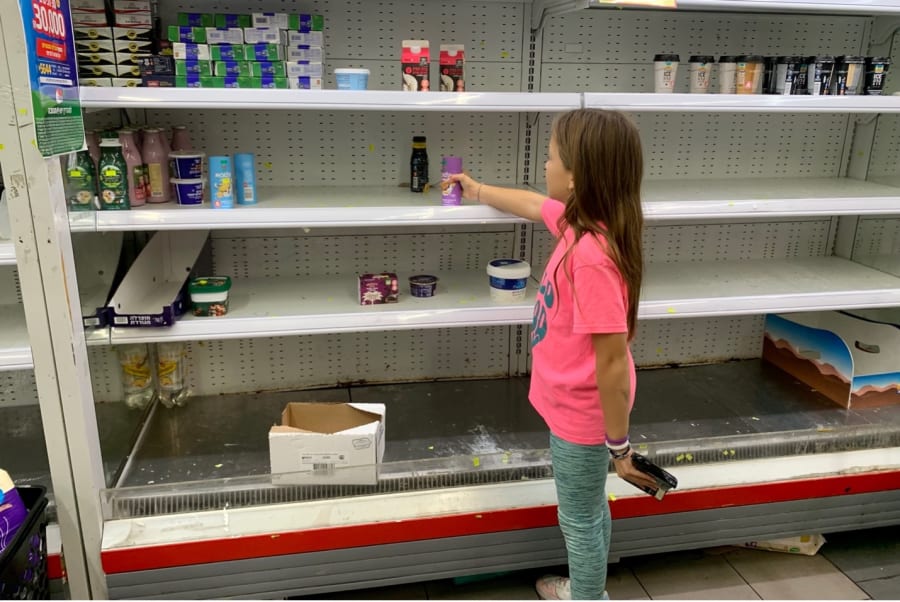Supermarket shelves bare, prices of goods rising, Israelis already face economic impact from war
Attempting to stock up on supplies, Israelis have discovered additional challenges from the conflict

Almost a week into the war, supermarket shelves are becoming empty of merchandise as consumers fill their carts, while at the same time, discovering during checkout that prices have increased significantly from a week ago.
A price comparison survey conducted by the Retail Research Institute in Israel examined the prices at several supermarket chains on Wednesday and compared them to the previous week.
The survey found that Israeli supermarkets had increased prices anywhere from 4.77%, to as much as 10.25% since the beginning of the war on Saturday between Israel and Hamas.
Economy and Industry Minister Nir Barkat reacted sharply to the reports of supermarkets raising prices after the start of the war.
“It is not possible to cynically exploit the public in times of war, and we will act with determination and a firm hand against those who oppress the public in times of emergency,” Barkat said on Thursday.
“If such price increases are found," the minister declared, “I will not hesitate to promote the imposition of supervision on additional products.”
The Ministry of Economy and Industry also asked consumers to report excessive price increases or price hikes on cost-regulated food products.
Israel is not a completely free market economy, as the government still regulates the price and production quantities of certain products.
Among the price-regulated items are milk, sour cream, certain cheeses, eggs, bread and salt.
Some people had reported price increases on those items, as well as fresh produce after the start of the war.
At the same time, many supermarkets and convenience stores have run low on certain products, particularly products recommended as emergency supplies, such as bottled water, canned foods and dry foods, such as pasta.
After the Home Front Command issued a recommendation for each individual or family to have enough supplies for 72 hours without water or electricity, some stores began to post signs limiting the purchase of certain items to one per person.
Supermarkets complain that they have had to increase prices on some items because of a disruption in the supply lines. Many of the workers, especially delivery drivers and shelf stockers, are Palestinian Arabs, many of whom are no longer allowed entry into Israeli territory following the start of the war.
“We are without workers and without goods,” an industry source told Walla! News earlier in the week.
Some community stores posted signs asking for volunteers to assist in stocking shelves.
The Ministry of Economy and Industry announced it is working to bring relief measures to businesses in cooperation with the Ministry of Finance and the Tax Authority.

The All Israel News Staff is a team of journalists in Israel.













